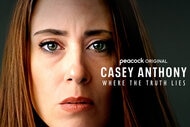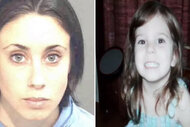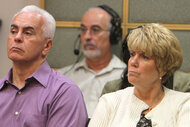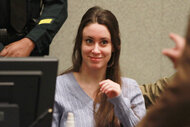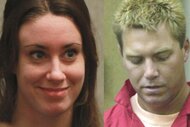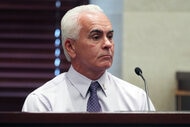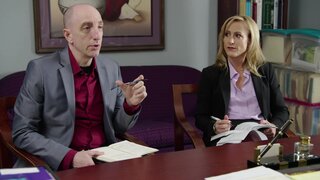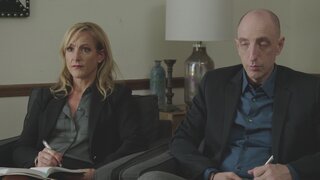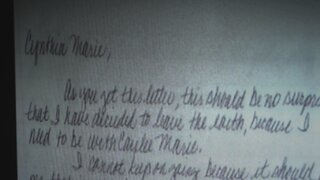Create a free profile to get unlimited access to exclusive videos, breaking news, sweepstakes, and more!
5 Shocking Moments From The Casey Anthony Trial
An estimated 40 million Americans tuned into the Casey Anthony trial. Remember these moments?
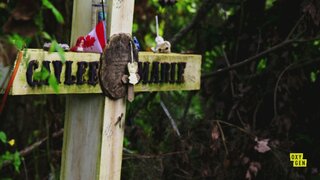
The trial of Casey Anthony in July of 2011 captivated the nation, with an estimated 40 million Americans tuning in, according to People. Casey was acquitted of charges including first-degree murder and manslaughter in the death of her 2-year-old daughter, Caylee, who had gone missing in the summer of 2008. Her remains were discovered by police in a wooded area not far from the Anthony home in Orlando, Florida, in December of that same year. Oxygen will explore this story in "The Case of: Caylee Anthony," a three-night special event airing Saturday, May 19, Sunday, May 20 and Monday, May 21 at 8:00PM ET/PT.
The trial's numerous twists and turns were filled with claims that both fascinated and outraged the country. Here are five moments from the trial that had people talking.
1. A fight occurred outside the trial
Because the trial had garnered national attention, seats in the courthouse were limited. At least one skirmish broke out among hopeful attendees struggling to gain access to the courthouse's viewing area, creating a situation derisively described as "the running of the bulls." The brawl was caught on camera and later played on NBC News, according to The Hollywood Reporter. Police were ultimately called to handle the altercation.
2. The tattoo
After Caylee had gone missing and before police were notified, Casey got a tattoo of the words "Bella Vita" (Italian for "beautiful life"). Caylee had disappeared in mid-June and Casey got the tattoo on July 2, 2008, according to trial testimony.
Tattoo artist Bobby Williams said that Anthony seemed to be in a good mood when she arrived at his shop, according to CBS News. She had made the appointment for the tattoo a few days ahead of time, he told the court.
Casey, according to ABC News, explained the meaning of the tattoo to a psychiatrist: "You talk about the beauty in life, but if you look at it backwards it creates an irony in terms of how my life has turned out.”
3. The search for "chloroform"
Prosecutors presented a search history on the Anthony house's computer as evidence in the trial. One of the searches, according to prosecutors, was for the word "chloroform," a chemical that can temporarily incapacitate a person. A witness testified that the search for the word "chloroform" was conducted in March, months before Caylee's death, according to CNN.
Casey’s mother, Cindy Anthony, testified that she was the one who searched for “chloroform.” According to NBC News, Cindy said that she had “run the chloroform queries while looking up information on chlorophyll, a green pigment found in plants.”
4. Judge reprimanded lawyers
Judge Belvin Perry repeatedly reprimanded lawyers on both the prosecution and defense for violations of court rules of evidence, according to ABC News. In a stern warning to both teams, Perry offered a thinly-veiled threat about potentially declaring a mistrial.
"Enough is enough and both sides need to be forewarned that exclusion even at the price of having to do it all over again, which I don't think I will have to do it all over again, because of repeated violations, exclusion might be the proper remedy if it continues," said Perry.
5. The verdict itself
Some people were surprised when Casey Anthony was found not guilty of either first-degree murder or manslaughter, according to ABC News, with a group of bystanders outside the courthouse chanting “appeal, appeal” and “justice for Caylee.” Of course, prosecutors can't appeal acquittals. The verdict is final.
Judge Belvin Perry has since discussed the verdict.
"There was sufficient evidence to sustain a verdict of murder in the first degree in this case," he said to Today. "I thought they had proved a great case, but you’ve got to realize this was a circumstantial evidence case. All the defense had to do was create that reasonable doubt, and that’s what they did."
In a post-verdict press conference, according to ABC News, a defense attorney for Casey criticized the media’s blitz coverage during the trial, calling it an “assassination" filled with "bias and prejudice and incompetent talking heads."
[Photo: Casey Anthony by Pool / Getty Images]
